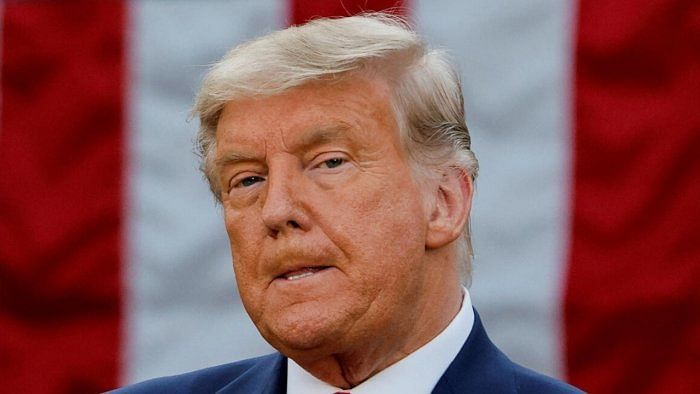
Former US president Donald Trump.
Credit: Reuters Photo
Donald Trump has claimed in a lawsuit in a London court that Christopher Steele, a former British intelligence officer, inflicted “personal and reputational damage and distress” on him by leaking a dossier detailing unsavory, unproven accounts of links between him and Russia during the 2016 presidential campaign.
Lawyers for Trump argue that Steele’s firm, Orbis Business Intelligence, breached British data protection laws with the dossier, which triggered a political earthquake when it was published just before Trump’s inauguration in 2017.
The lawsuit, the first filed by Trump in Britain related to the dossier, could offer the former president more favorable legal terrain than the United States. Last year, a federal judge in Florida threw out his lawsuit claiming that Steele, as well as Hillary Clinton and the Democratic National Committee, was involved in a concerted plot to spread false information about Trump’s ties to Russia.
In a court filing last month, Trump’s lawyers said he was “compelled to explain to his family, friends, and colleagues that the embarrassing allegations about his private life were untrue. This was extremely distressing” for him, the filing said, asserting that Steele had presented the claims in a “sensationalist manner” that was “calculated to cause tremendous embarrassment” to Trump. He is asking for unspecified compensation.
The High Court Judge Matthew Nicklin has scheduled a two-day hearing on Oct. 16 and 17, at which arguments will be heard and lawyers for Steele’s firm will move to throw out the case, which was originally filed in November 2022.
The Steele dossier grew out of an opposition research effort to dig up information about Trump, funded by Clinton’s campaign and the Democratic Party. Their law firm, Perkins Coie, contracted with a Washington research firm, Fusion GPS, which in turn hired Steele, an expert on Russia, to research Trump’s business dealings in the country.
Steele shared some of the memos with the FBI and journalists; they first came to light in January 2017 when BuzzFeed published 35 pages.
His findings have been largely discredited by the FBI and others who have investigated Trump’s relationship to Russia.